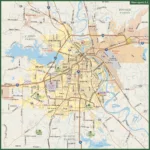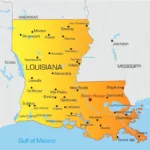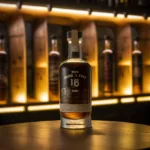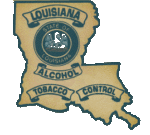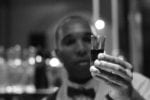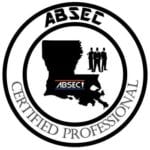Sec. 9:1000. Licenses required for businesses and employees.
(a) Licenses required. No person, firm, corporation or association of persons shall engage in any business or employment described in section 9:1000 or 9:1003, without first obtaining the necessary licenses and permits required hereunder, including all state and local permits.
(b) Qualifying beverages and businesses. Any person, firm, corporation or association of persons who, as a business or as a means of employment, manufactures, blends, rectifies, distills, processes, imports, stores, uses, handles, holds, sells, offers for sale, solicits orders for the sale of, distributes, delivers, serves or transports any beer, porter, ale, fruit juices, wine, or spirituous beverages of an alcoholic content not exceeding that now or hereafter permitted by law, but greater than one-half (½) of one (1) percent of alcohol by volume, or, any malt, vinous, spirituous, alcoholic or intoxicating liquors containing more than six (6) percent of alcohol by volume, within the limits of the parish, shall be deemed a retail dealer, or wholesale dealer, or a classified employee, as the case may be, for all purposes of this chapter. All such persons must hold all applicable local and state permits, pursuant to title 26 and the wine, beer and liquor ordinance.
(c) Wholesale dealer required to verify retail license before delivery. No wholesale dealer shall dispense or sell to any retail dealer any of the beverages described in subsection 9:1000(b), unless the retail dealer has procured and has posted in a conspicuous place in his establishment, the permit/license required in this chapter. Every wholesaler shall, at the time of shipping or delivering such beverages to a retailer, make a true duplicate invoice of each such shipment showing full and complete details of the sale or delivery, and shall include on such invoice the city or parish license/permit number. No wholesaler shall dispense, sell or deliver to any retail dealer until the wholesaler has been furnished the retail dealer’s city or parish license/permit number.
(d) Establishment operated as a retail dealer. Any person, firm, corporation, or association of persons, who conducts an establishment as a business where any of the beverages mentioned in subsection 9:1000(b) of this chapter are stored, used, consumed, handled, sold, given away or otherwise disposed of, shall be considered as conducting such establishment as a retail dealer for all purposes of this chapter, and shall pay the same license tax as that required of a retail dealer selling for use or consumption on or off the licensed premises.
(Ord. No. 15405, § 1, 10-24-12; Ord. No. 15425, § 1, 12-12-12)
Sec. 9:1006. Hours of operation and closing times for licensed or permitted businesses and organizations.
(a) Class A, B and R license holders. The hours of operation of all class A and R on-premises consumption license holders shall be from 6:00 a.m. daily until 2:00 a.m. of the following day, Mondays through Saturdays, and from 11:00 a.m. Sunday daily until 12:00 a.m. Midnight Sunday. The hours of operation of all class B off-premises consumption license holders shall be from 6:00 a.m. daily until 2:00 a.m. of the following day. Whenever New Years Eve falls on a Sunday, all class A and R license holders shall be allowed to operate on New Years Eve until 2:00 a.m. the following day, and the premises must be vacated by 2:30 a.m. the following day. It shall be a criminal offense as well as a violation of this chapter for any holder of such a retail dealer’s license/permit issued under this chapter or a servant, agent or employee of same to dispense, in any manner, beverages described in subsection 9:1000(b) of this chapter between the hours of 2:00 a.m. and 6:00 a.m., except as provided below:
(1) Sunday sales—Motels, hotels, restaurants, convention facilities and private clubs. Without meeting the requirements of subsection 9:1003(g)(5) of this chapter, motels, hotels, convention facilities, riverboats as defined in the Louisiana Riverboat Economic Development and Gaming Control Act, R.S. 9:501, et seq. and adjacent docking and patron assembly facilities including restaurants, and private clubs offering family-type outdoor recreational facilities designed and used as golf and/or tennis clubs whose land area used for said recreational activities exceeds the area in square footage used for improvements by a ratio of at least 20 to 1, shall be permitted to serve beverages described in subsection 9:1000(b) herein between the hours of 11:00 a.m. and 12:00 midnight Sunday to guests, members and other private functions including legitimate groups, but shall be prohibited from selling package goods or opening bars or lounges to the general public during the specified hours. Said ratio in square footage is to be determined by the inspection division. Private clubs designated above shall meet all requirements of subsection 9:1006(a)(2)a. and b. except such clubs will not have to be classified as a non-profit organization. Riverboats, as previously defined in this section, may only serve beverages described in subsection 9:1000(b) herein between the hours of 11:00 a.m. and 12:00 midnight Sunday to their patrons.
(2) Sunday sales—Non-profit organizations. Religious, charitable, fraternal, veterans and other private clubs, which are non-profit organizations in nature and classified as such by all taxing authorities, licensed under the provisions of this chapter, upon certification as a non-profit organization by the ABC office, shall be permitted to sell beverages described in subsection 9:1000(b) between the hours of 11:00 a.m. Sunday and 12:00 Midnight Sunday subject to meeting the following conditions:
- Criteria. That an organization described in this section apply for and receive on an annual basis, a permit to serve alcoholic beverages during the hours specified above.
- Documentation required. Said permit application to be accompanied by:
- A copy of the charter of the organization, club, or facility.
- A current, accurate membership roster showing full names of members and their current residence address.
- Certification by the duly elected officers of the organization that said organization is certified a non-profit organization by all taxing authorities and list such authorities.
- That an organization applying for a permit under this section also hold a current license/permit under other provisions of this chapter for the sale of alcoholic beverages.
(3) Closing hours. All class A (on premises consumption) locations shall be closed at 2:30 a.m. until 6:00 a.m., the same day, Monday through Saturday, and shall be closed from 2:30 a.m. Sunday until 11:00 a.m. and shall be closed from 12:30 a.m. until 6:00 a.m. Monday. All class B (off premises consumption) locations may remain open 24 hours per day, however, no alcohol may be sold, dispensed, or given away from 2:00 a.m. until 6:00 a.m. daily, Monday through Sunday.
(4) Exemptions. Those businesses exempted from the provisions of former R.S. 51:191 and by the provisions of former R.S. 51:192 as they read when repealed in 1986, and riverboats as defined in the Louisiana Economic Development and Gaming Control Act, R.S. 9:501, et seq., and adjacent docking and patron assembly facilities, may remain open for the sale of other items permitted by law, but any sale, dispensing, or consumption of alcoholic beverages at such places of business during the prohibited periods set forth above is expressly forbidden. During the prohibited periods, no open containers, glasses, bottles, cans or other containers holding alcoholic beverages shall be allowed anywhere on the licensed premises or property, except in a locked cabinet or cupboard; provided that those businesses maintaining separate rooms for the conduct of the business of dealing in alcoholic beverages may securely close and lock said separate rooms. Proof of the finding of any open container holding alcoholic beverages at any other place in the licensed premises during the prohibited periods shall result in a presumption that some of the contents of the container were consumed on the licensed premises on the date found and during the prohibited period; and shall further result in a presumption that the contents of the container were sold by the license/permit holder, his manager, agent, servant or employee on the date found.
(b) Class P license holders. The hours of operation of all class P (on-premises consumption) license holders shall be from 10:00 a.m. daily until 12:00 a.m. of the following day. It shall be a criminal offense as well as a violation of this chapter for any holder of a class P license issued under this chapter or a servant, agent or employee of same to dispense, in any manner, beverages described in subsection 9:1000(b) of this chapter between the hours of 12:00 a.m. and 10:00 a.m. All class P locations shall be closed at 12:30 a.m. and may not sell beverages described in subsection 9:1000(b) of this chapter before 10:00 a.m.
(c) Class M license holders. The hours of operation of all class M (manufacturer’s) license holders shall not be limited, except as follows:
(1) Class M license holder with on-premises consumption. The hours of operation of all class M (manufacturer’s) which also holds a class A license and operates any on-premises tasting room, other on-premises consumption facility or service point of any sort shall be from 9:00 a.m. until 12:00 a.m. of the following day, Monday through Thursday, 8:00 a.m. until 2:00 a.m. of the following day, Friday and Saturday, and 12:00 p.m. until 12:00 a.m. on Sundays for those areas which serve or dispense any qualifying beverages under this chapter. The hours of operation for the manufacturing operation shall not be limited.
(2) Class M license holder with off-premises consumption. The hours of operation of all class M (manufacturer’s) which also holds a class B license and operates any sales point for off-premises consumption of any sort shall be from 9:00 a.m. until 12:00 a.m. of the following day, Monday through Thursday, 8:00 a.m. until 2:00 a.m. of the following day, Friday and Saturday, and 12:00 p.m. until 12:00 a.m. on Sundays for those areas which serve or dispense any qualifying beverages under this ordinance. The hours of operation for the manufacturing operation shall not be limited.
(Ord. No. 15405, § 1, 10-24-12; Ord. No. 15425, § 1, 12-12-12; Ord. No. 15458, § 3, 2-27-13; Ord. No. 15469, § 2, 3-27-13; Ord. No. 15537, § 2, 8-14-13)
Sec. 9:1007. Types of employee licenses, fees for employee licenses, and qualifications for employee licenses.
(a) Classified employee license required. Any person employed or used in a class A or R licensed retail business or a licensed limousine service who, as a function of their duties, dispenses, sells or serves any alcoholic beverages as described in subsection 9:1000(b) of this chapter shall be required to be licensed. A classified employee license shall cost thirty dollars (.00) for issuance of a license to a qualified applicant, as defined in this chapter, for of a two-year license.
(b) Classified employees in general. Persons required to hold permits under this section shall be referred to as classified employees and that classification, as used in this section, shall include, but not be restricted to mean bartenders, barmaids, waiters, waitresses, cocktail waiters, cocktail waitresses and chauffeurs employed by a licensed limousine service except that this subsection shall not apply to a person holding a dealer’s license, or to a person holding a waiter/waitress alcoholic beverage permit as described in this chapter.
(1) Manager, bouncer, doorman and disc jockey required to obtain classified employee license. Any person employed in any retail business described herein as a manager, disc jockey, door man, or “bouncer” shall also be subject to licensing under this chapter as a classified employee.
(2) Exotic dancers. Any person performing as an exotic dancer at any business licensed under the provisions of this chapter, or any event exempted or permitted under this chapter, shall comply with the provisions of Code of Ordinances sections 9:325—9:329, which provides for qualifications and licensing of exotic dancers, in addition to the provisions herein.
- Any person employed or used in any retail business to dance or gyrate or perform any other physical performance shall be subject to licensing as a classified employee, except that records of exotic dancers shall be separately kept and made available to law enforcement officials. Provided that the provisions of this section shall not apply to amateur nights wherein non-employees are allowed to dance without the benefit of any compensation whatsoever, including gratuities from patrons. Any business, individual, organization or other entity wishing to conduct an amateur night shall, at least seven (7) days before the event, notify the alcoholic beverage control office of the intent to do so and shall at that time specify the date of such event and the hours thereof, said notification to be written. No such entity shall be permitted to have more than one amateur night per week.
- It shall be illegal for any employee to solicit or induce any persons on the premises to purchase for him/her or for the solicitor or any other person, any beverage or other product of whatever kind sold in such establishment whether or not the solicitor expects to realize a profit or reward as a result of such solicitation. This paragraph shall not apply to bartenders, managers, waiters or waitresses.
(3) Fashion models. Any person employed or used in any retail business to perform services as a model and models, demonstrates, or in any way displays clothing or wearing apparel of any kind in return for anything of value, shall also be subject to licensing under this chapter as a classified employee.
(c) Waiter/waitress license required. Any person employed or used in a class A or R licensed retail business whose primary function is to take orders for and serve food and food items and who also takes orders for and serves alcoholic beverages in conjunction with the serving of those meals. A waiter/waitress license shall cost thirty dollars ($30.00) for issuance of a license to a qualified applicant, as defined in this chapter, for the duration of employment in that particular corporation, company or association, with the thirty dollar ($30.00) fee to be recharged if the waiter/waitress who holds a waiter/waitress alcoholic beverage license changes position of employment to another corporation, company or association.
(d) Retail clerk license required. Any person employed or used in a class B licensed retail business who, as a function of their duties, dispenses, sells or serves any alcoholic beverages as described in subsection 9:1000(b) of this chapter. Persons required to hold licenses under this section shall be referred to as retail clerks and that classification, as used in this section, shall include, but not be restricted to mean managers, sales clerks, retail clerks, and check-out counter clerks. A retail clerk license shall cost thirty dollars (.00) for issuance of a license to a qualified applicant, as defined in this chapter, for the duration of employment in that particular corporation, company or association with the thirty dollar (.00) fee to be recharged if retail clerk who holds a retail clerk alcoholic beverage permit changes positions of employment to another corporation, company or association.
(e) Qualifications for classified employees, retail clerks and waiter/waitresses. Each applicant for a permit as a classified employee, retail clerk and/or waiter/waitress shall meet the requirements as listed in subsection 9:1003(e), except the two-year residency requirement and the requirements of both national and state citizenship as required under subsection 9:1003(e)(2), provided that any person not a citizen of the United States shall be the holder of a properly issued passport and current visa. If the above applicant has been adjudged by a board or convicted by a court in any matter stated in section 9:1003(e) of this chapter, the granting of any permit or of a renewal is within the discretion of the board.
(Ord. No. 15405, § 1, 10-24-12; Ord. No. 15425, § 1, 12-12-12; Ord. No. 15458, § 4, 2-27-13)
Sec. 9:1010. Building, location, zoning, and parking requirements for businesses.
(a) Building requirements.
(1) Acquire and maintain health permit and comply with all fire, building, plumbing, electrical, heating, air conditioning and zoning codes. Failure to possess and maintain all proper and applicable health permits for any premises licensed under this chapter or the violation of, or noncompliance with any applicable fire prevention, building, plumbing, electrical, heating, air conditioning or zoning codes pertaining to any premises licensed under this chapter shall be cause for denial, revocation or suspension of any permit or license. The issuance or reinstatement of any such license, application or permit shall not be considered by the ABC board until the board receives notification from the proper authority that all health permits are valid and current or said violation or noncompliance has been corrected. In the case of new construction of a proposed licensed location, a certificate of occupancy shall be required before final issuance of a license or permit.
(2) Premises destroyed. In the event that premises licensed hereunder are destroyed by fire or any natural disaster or act of God, the licensee shall be permitted a reasonable time within which to reconstruct the licensed premises, but in no event longer than twenty-four (24) months, unless further extended by the ABC board.
(b) Location prohibitions—Three hundred-foot distance requirement from churches, schools and public playgrounds, and daycare centers. No license or permit shall be granted hereunder to any applicant when the property upon which the business is to be conducted is within three hundred (300) feet of any property used exclusively as a regular church or synagogue, public library, school or orphans’ home (except a school for business education conducted as a business college or school, and except a state college or university), or within three hundred (300) feet of a public playground, or within three hundred (300) feet of a daycare center, provided that the provisions of this section shall not apply to premises which are maintained as a bona fide hotel, wholesale dealer, railway car, or fraternal organization, or to any premises licensed to deal in beverages of low alcoholic content, for a period of one (1) year, or longer, prior to the passage of this ordinance. The limitation on distance from a public playground shall not apply to a premises operated as a class P, public recreational facility licensee. The three hundred-foot minimum distance shall be measured as provided by state law in R.S. title 26.
(c) Zoning.
(1) Non-conforming. No person operating a business which is presently classified as a legal non-conforming commercial use, as defined in the zoning ordinance of the city and parish, may apply for or be issued a license or permit without first obtaining a petition of fifty-one (51) percent of the property owners within three hundred (300) feet of said business (said petition must be obtained from the DPW permit office). This section only applies to class B (package) sales of retail beer and/or liquor, which does not allow consumption on the premises.
(2) Requirements must be met prior to application. All zoning requirements as required by the zoning ordinance of the city and parish must be met prior to the time an application for an alcoholic beverage license is filed with the ABC office.
(3) Waiver of parking requirements. The ABC board, subject to the approval of the zoning commission, may waive parking requirements either in whole or in part upon a finding that such waiver is in the public interest or that the person, firm, corporation, association of persons, or premises was operating on the premises prior to September 24, 1975.
(Ord. No. 15405, § 1, 10-24-12; Ord. No. 15425, § 1, 12-12-12; Ord. No. 15469, § 4, 3-27-13)

